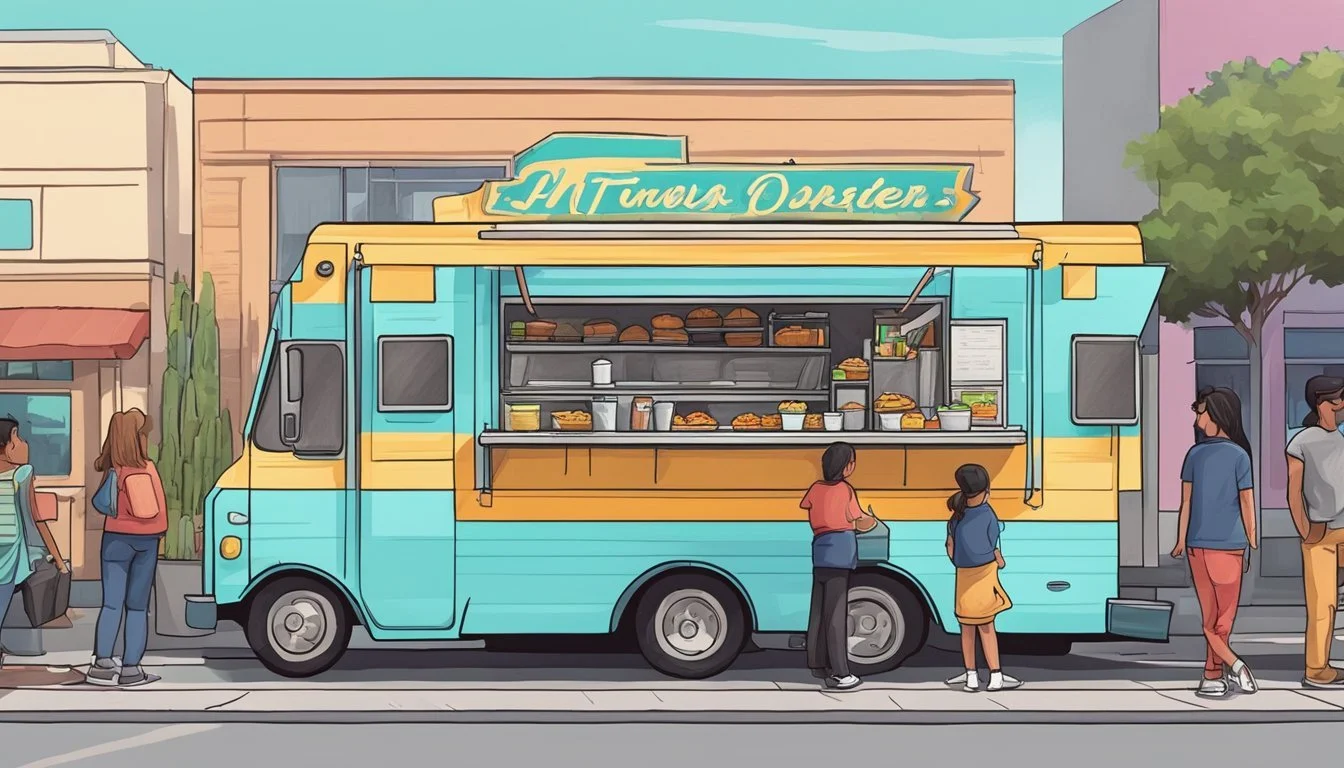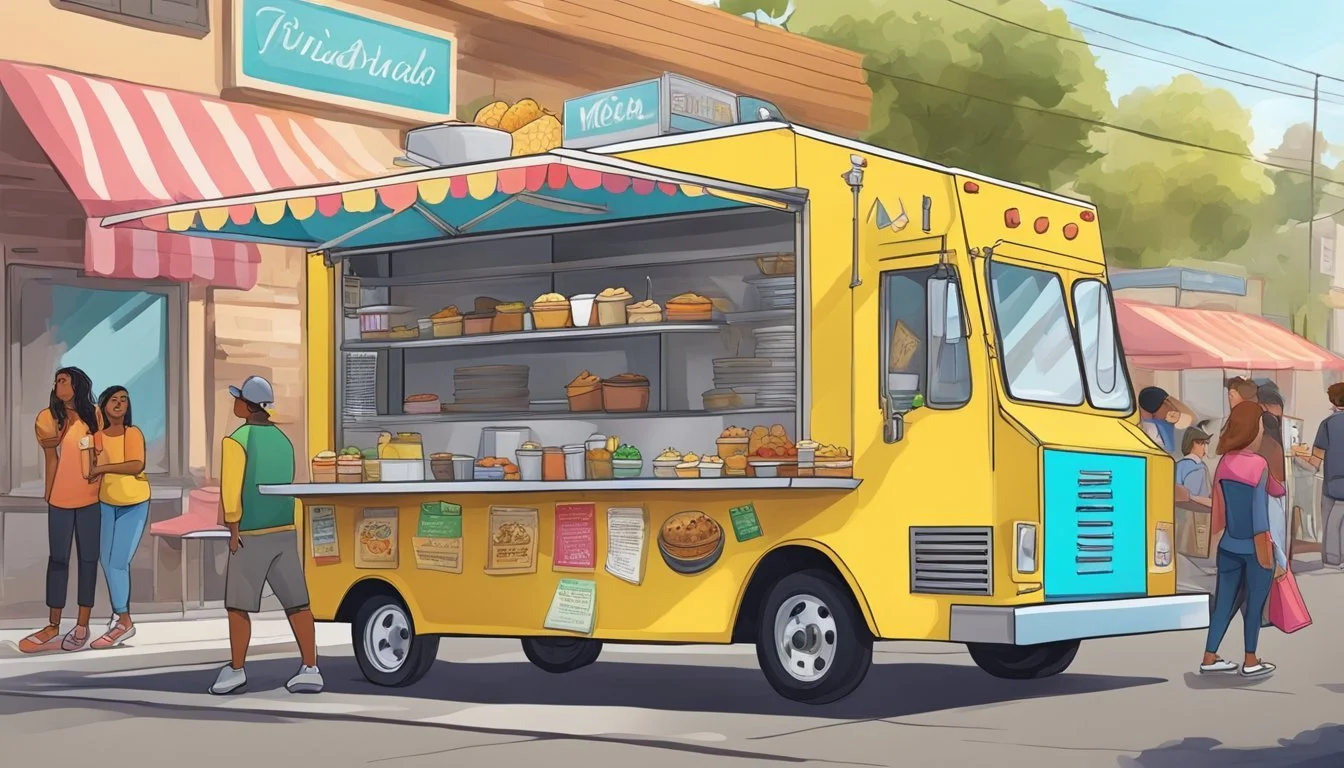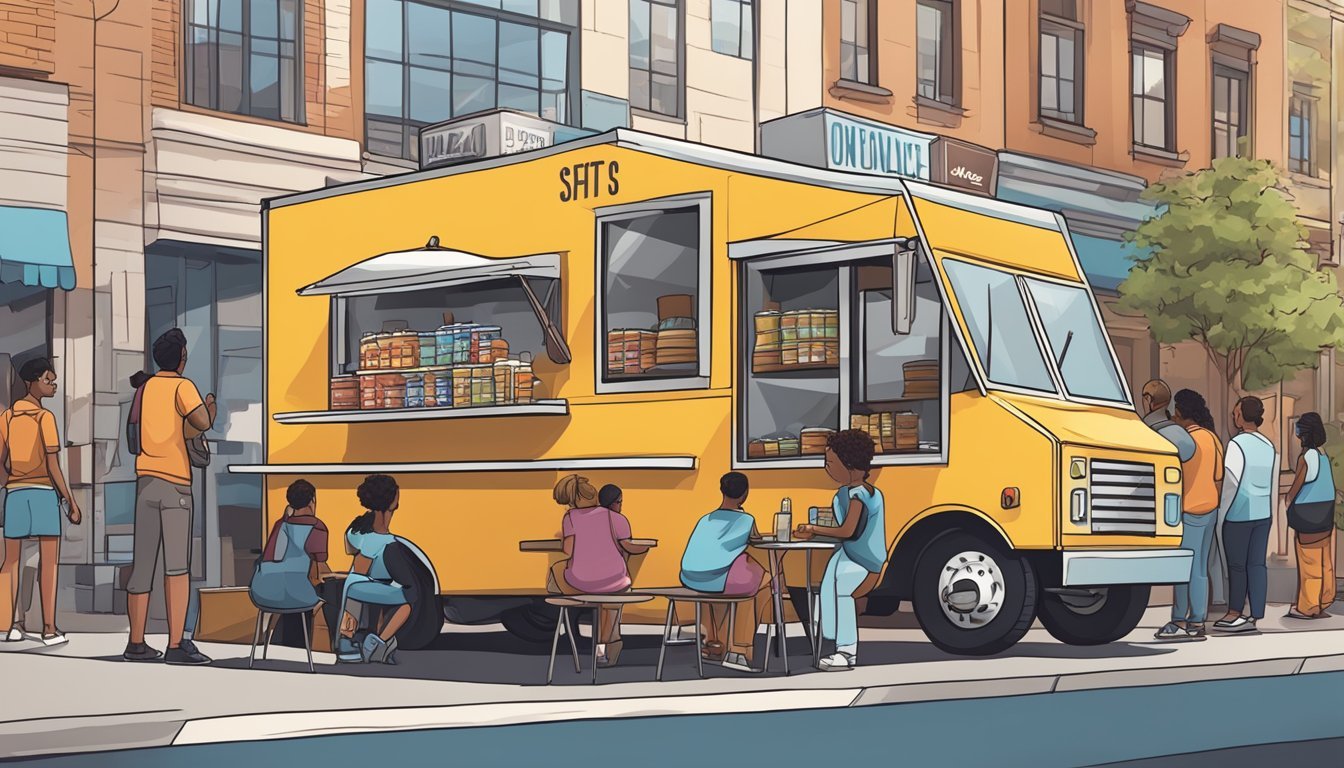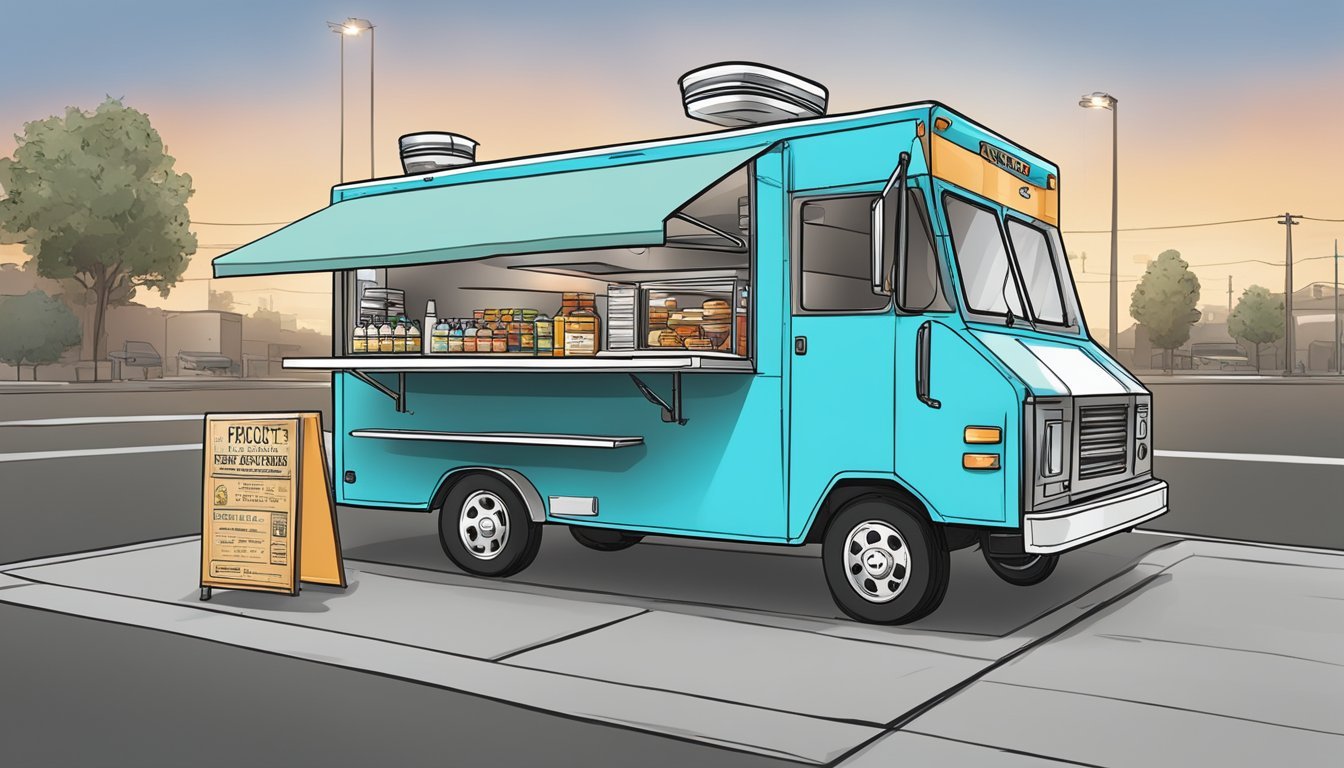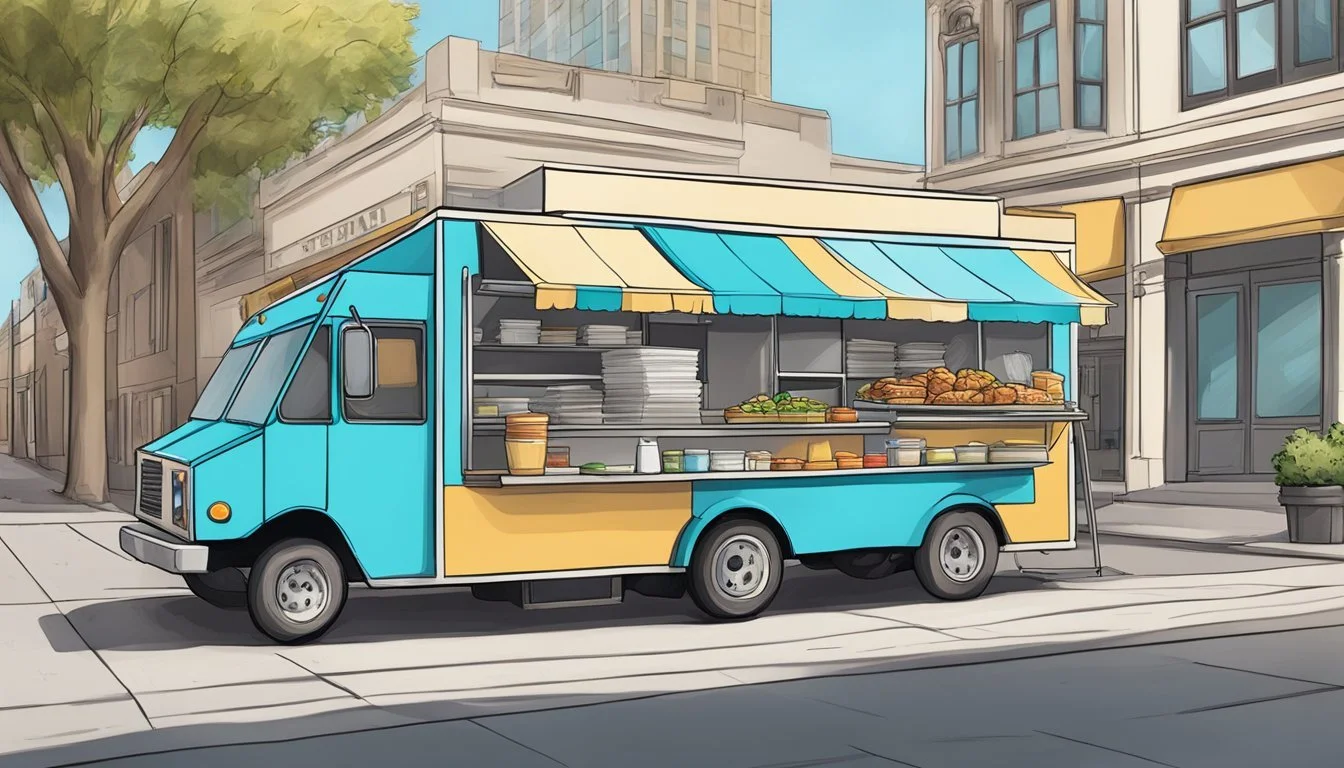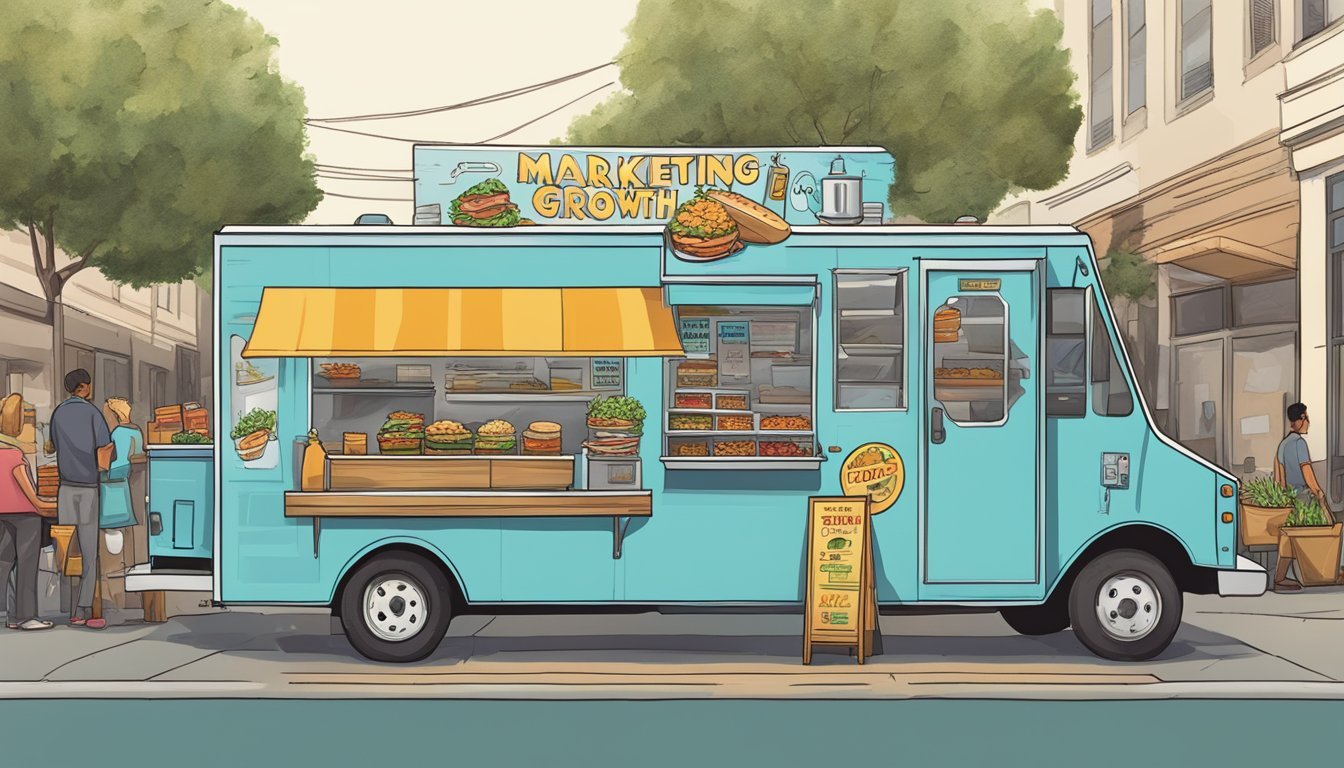Food Truck Laws Modesto, California
Regulations and Permits Explained
Operating a food truck in Modesto, California, requires navigating specific laws and regulations to ensure the safety and satisfaction of customers while complying with local and state requirements. Modesto, as part of Stanislaus County, mandates that mobile food facilities, including food trucks, adhere to the guidelines set by the California Retail Food Code. This comprehensive code is vital for protecting public health and outlines standards for food handling, preparation, and storage. Food truck operators within the city limits must obtain a Mobile Food Facility Permit to operate legally, ensuring they meet all sanitary and safety regulations.
Securing the necessary permits involves a series of steps, including submitting an application with the City of Modesto, and a thorough review by the Community and Economic Development Department/Planning Division. Food truck owners must also be aware of the construction guidelines provided by the Stanislaus County Department of Environmental Resources to ensure their vehicles are up to code. In addition to state regulations, food trucks operating in Modesto must comply with specific municipal requirements to maintain a safe and thriving mobile food industry.
The city expects food truck operators to be familiar with and practice proper food handling procedures as outlined by the state. Additionally, food trucks must pass regular inspections conducted by the county's enforcement agency responsible for food permits. These inspections are designed to uphold the safety standards consistent with the California Retail Food Code. The objective is not only to ensure compliance but also to foster a food truck culture that is both appealing to consumers and supportive of public health initiatives.
Starting a Food Truck Business
Starting a food truck business in Modesto, California, requires careful planning and adherence to local regulations. Entrepreneurs must consider each step, from initial concept development to the complexities of operational logistics.
Business Plan Development
A business plan is the foundation of any successful food truck business. Entrepreneurs must outline their business concept, perform extensive research on the Modesto market, and analyze competitors to create realistic financial projections. The plan should detail strategies for growth and sustainability.
Choosing the Right Food Truck
Selecting an appropriate food truck is critical. It serves as the mobile venue for your kitchen and impacts the initial investment and operational efficiency. In Modesto, entrepreneurs need a vehicle equipped with essential kitchen equipment that meets the local health regulations.
Legal Structure and Name
Deciding on a business entity, such as an LLC or partnership, is a key step for legal and financial protection. Entrepreneurs must register their business with a unique name and consider trademark issues to avoid legal conflict. A limited liability company (LLC) is a popular choice due to the protection it offers.
Location Scouting
Finding optimal locations for parking and operating the food truck is essential. Modesto may provide various high-traffic spots, but it's crucial to understand parking regulations. Entrepreneurs should scout multiple locations to assess potential customer reach and accessibility.
Creating Your Menu
The menu is the centerpiece of any food truck business. It should reflect your unique concept and appeal to Modesto's diverse palate. Creating your menu requires careful selection of food items and kitchen supplies, balancing quality with cost-effectiveness to ensure profitability.
Permits, Licenses, and Regulations
In Modesto, California, operating a food truck involves navigating a series of local and state-level regulations to ensure compliance. From zoning laws to health department certifications, each requirement is critical for legal operation.
Understanding Local Laws and Regulations
Local laws and ordinances in Modesto play a pivotal role in dictating where a mobile food facility can operate. Zoning regulations determine the specific locations where food trucks may do business, which can vary widely even within city limits. It is vital for food truck owners to acquaint themselves with these local regulations to avoid legal complications and fines.
State and Health Department Requirements
The health department mandates that all mobile food facilities comply with state and health department requirements to ensure public safety. This includes obtaining a health permit, which certifies that the food truck meets all health and safety standards. Regular health inspections are conducted to ensure ongoing compliance. Additionally, food safety certification may be required for at least one employee to demonstrate knowledge of safe food handling practices.
Required Permits and Licenses
To operate legally, food trucks in Modesto must acquire the necessary permits and licenses. This starts with a mobile food facility permit from Stanislaus County, which is required to sell food within Modesto city limits. Operators must also obtain a business license, an employer identification number for tax purposes, and if applicable, a reseller permit. Securing a food handler permit for all individuals handling food is also essential to meet legal requirements.
Operational Considerations
When operating a food truck in Modesto, California, owners must take into account a variety of factors that ensure their services are not only up to code but also efficient and customer-friendly. These include the proper procurement of essential equipment and supplies, adherence to food safety and hygiene standards, effective waste management practices, and comprehensive staffing and training strategies.
Essential Equipment and Supplies
Food truck businesses in Modesto require a range of essential equipment to operate smoothly. This includes cooking equipment such as grills, stoves, and fryers that must be commercial-grade and comply with safety regulations. Additionally, an adequate supply of refrigeration units to store perishables is crucial. Inventory management systems are also important to track supplies and avoid shortages or excess that could affect the business operation.
Cooking and Storage:
Commercial-grade grills, stoves, fryers
Refrigerators and freezers for inventory
Inventory Management:
Systems for tracking stock levels
Regular checks to prevent overstocking or running out of ingredients
Food Safety and Hygiene
To maintain public health and comply with local regulations, all food truck personnel should hold a valid food safety certification. Proper handling of food, regular health inspections, and consistent cleanliness protocols are necessary measures. Operators must also ensure that all food is prepared on sanitized surfaces and that employees are trained in contamination prevention.
Certifications and Practices:
Mandatory food safety certification for all staff
Regular kitchen cleanliness inspections
Sanitization and Training:
Procedures for proper food handling
Staff training on hygiene and contamination prevention
Waste Management
Proper waste management is essential to prevent pollution and maintain the cleanliness of the food truck and its surroundings. This includes not only regular trash disposal but also the management of food waste and recyclables. Food trucks should use designated receptacles for trash and recycling, and ensure they are emptied and cleaned regularly to avoid attracting pests and creating pollution.
Disposal Systems:
Separate bins for recyclables, food waste, and trash
Regular emptying and cleaning of waste receptacles
Staffing and Training
The staffing of a food truck requires careful consideration of the skill set and training required to operate within the food industry effectively. Staff should be well-versed in customer service, food preparation, and safety standards. Continuous training ensures they remain informed on the latest regulations and practices within the industry.
Skill Set and Customer Service:
Hiring staff with experience in food service
Training on customer interaction and satisfaction
Continuous Training:
Ongoing education on food industry trends and practices
Updates on health and safety standards
Financial and Legal Aspects
The financial and legal aspects surrounding the operation of a food truck business in Modesto, California, are multifaceted. With considerations ranging from start-up funding to ensuring compliance with tax laws, food truck operators must navigate a matrix of requirements. Adequate insurance coverage is also critical to protect the business from potential liabilities.
Funding and Financing
Food truck entrepreneurs often require initial funding and financing to launch their mobile eatery. Personal savings, family loans, or investors may provide necessary capital. Additionally, programs like the California Small Business Loan Guarantee Program can offer financial support. Proper financial projections are crucial for attracting investors and securing loans, acknowledging the projected revenue and associated costs of operating the food truck.
Tax Registration and Compliance
Operators must secure a Tax Identification Number (TIN) and, if hiring employees, an Employer Identification Number (EIN) from the IRS for tax purposes. Compliance with local and state tax laws involves registering with California's tax authority and managing sales tax, payroll tax, and other relevant taxes. Timely and accurate tax filing is non-negotiable to avoid penalties and ensure the food truck business remains in good standing.
Insurance and Liability
Securing comprehensive business insurance is critical to protect the food truck and its operations against unforeseen events. Coverage typically includes property, vehicle, and general liability insurance. Food truck owners must also be mindful of liability concerns; adequate liability coverage can safeguard against claims arising from foodborne illnesses, accidents, or other operational hazards. Regularly reviewing and updating insurance policies is essential to match the evolving scope of the food truck business.
Marketing and Growth Strategies
Operating a food truck in Modesto, California requires not only compliance with local food truck laws but also a solid strategy for marketing and growth. Successful food truck operators employ targeted strategies to build a recognizable brand, effectively advertise, and establish valuable networks and partnerships.
Building Your Brand
A strong brand differentiates your food truck from competitors, conveying your business’s unique identity. The branding process involves selecting an appropriate business name aligned with Modesto's food truck laws and registering a non-P.O. box business address to establish credibility. Brand elements should be consistently displayed across the food truck design, packaging, and online presence. It's vital that all branding materials follow Modesto's regulations concerning signage and public advertising.
Marketing and Advertisement
Marketing efforts should be multifaceted, with an emphasis on media outlets that resonate with the Modesto demographic. Local social media campaigns are a cost-effective way to reach a broad audience. Additionally, food truck owners should leverage local events and festivals for advertising opportunities. Importantly, advertising materials must comply with local regulations, including any permits required for public marketing displays.
Networking and Partnerships
Creating robust relationships through networking can lead to partnerships that fuel growth. Collaborations with local Modesto businesses, such as breweries or markets, facilitate shared customer bases and provide physical business addresses where food trucks can regularly operate. Such partnerships can extend to mutually beneficial arrangements, like cross-promotion and event co-hosting, always being sure to adhere to Modesto's food truck laws regarding location and operation hours.
Day-to-Day Operations
For food truck owners in Modesto, California, understanding and adhering to specific regulations is crucial to their day-to-day operations. Ensuring that equipment is well-maintained and transactions are handled effectively are key to running a successful mobile food business.
Navigating City and County Regulations
In Modesto, food truck operators must navigate a mix of city and county regulations. These include obtaining proper permits and staying compliant with health inspections. Food trucks are subject to the California Retail Food Code, and an operator must have a valid permit to be open for business. The food truck must be removed at the end of each business day, and the site maintained free of litter. A valid City of Modesto business license is also required, alongside a formal restroom arrangement within 200 feet of the mobile food facility.
Maintaining Food Truck Equipment
Regular maintenance of food truck equipment is mandatory to meet health and safety ordinances. Food truck operators should conduct frequent checks and servicing of cooking appliances, refrigeration units, and support systems, like propane tanks, to avoid potential hazards and ensure smooth operations. Compliance with safety standards helps owners avoid penalties and maintain a good reputation.
Refrigeration: Check temperatures daily.
Cooking appliances: Clean after each use.
Propane tanks: Inspect for leaks regularly.
Handling Payment Transactions
Efficient handling of payments is vital for the swift operation of food trucks. Operators must choose a reliable payment system that can process transactions quickly and securely. They should also ensure their systems support various payment methods such as cash, credit/debit cards, and mobile payments to accommodate customer preferences. Regular audits of transaction records contribute to the financial health of the business.
Payment Methods: Cash, credit/debit card, mobile.
Security: Use encrypted devices to protect customer data.
Record Keeping: Maintain accurate records for each transaction.
Expansion and Scalability
Modesto food truck owners looking to expand their businesses face various strategic decisions. Successful scale-up requires understanding laws related to new trucks, brick-and-mortar establishments, and varied approaches to franchising.
Adding Additional Trucks or Brick-and-Mortar Locations
When a food truck in Modesto sees significant success, an owner may consider scaling up by adding extra trucks or establishing a brick-and-mortar restaurant. This move demands a thorough understanding of local permit requirements for each additional mobile unit and adhering to zoning laws pivotal for physical locations. Diverse locations can offer vast opportunities to tap into new markets, leading to substantial business growth.
Franchising and Licensing
Transitioning into franchising requires a solid brand and a replicable business model. It involves creating a detailed contract that ensures both franchisor and franchisees uphold the brand standards. Modesto food truck owners eyeing this domain must comply with California’s specific regulations governing franchises, a move that could swiftly escalate their presence across the state or even nationally.
Diversifying the Business Model
Diversification of the business model can manifest in various formats, from catering services to the creation of merchandise. Modesto’s food truck enterprises should evaluate their market position and consider diversifying to mitigate risks and increase revenue streams. A strong and flexible business model is key for sustainability and resilience in the competitive food industry.
Conclusion
Operating a food truck in Modesto, California entails adhering to a set of specific regulations to ensure the success of such an entrepreneurial venture. Food truck owners must navigate a variety of requirements, from securing the appropriate permits to passing health inspections. To maintain compliance, they should familiarize themselves with the Mobile Food Facility Permit Requirements set forth by Stanislaus County and the general guidelines provided by the City of Modesto.
To operate legally, food trucks require:
A valid vehicle license plus commercial driver's license if necessary
Compliance with the California Food Handler Card Law
Adherence to zoning and park regulations, which Modesto may reinforce with special ordinances for food trucks offering free meals
Regular inspections and up-to-date permits are crucial for continual operation. While the process may seem daunting, it ensures public health and safety, contributing to the overall achievement of the food service providers. Owners are encouraged to remain proactive about changes in law, which can affect their ability to serve the community and their operational success. Through diligence and compliance, food trucks in Modesto can thrive and become cherished components of the local food scene.

